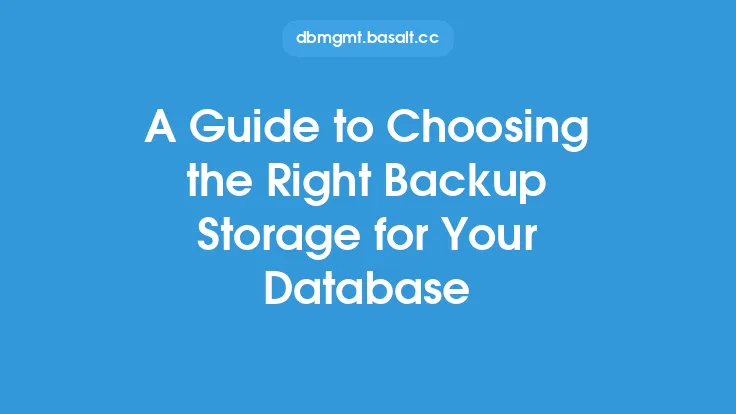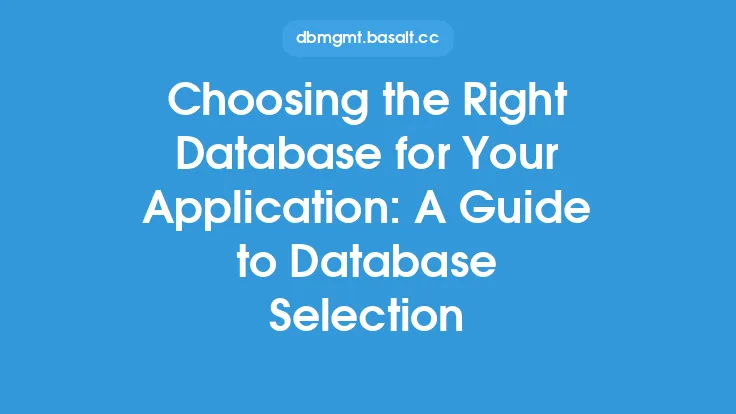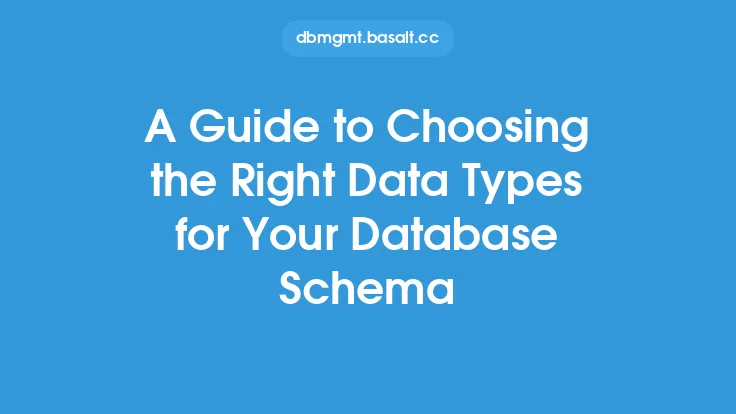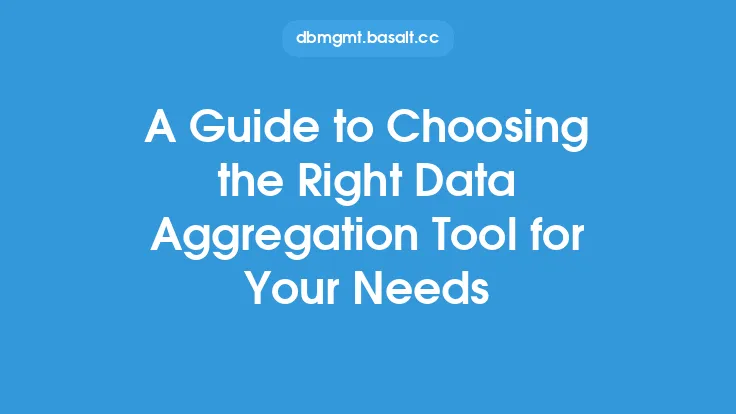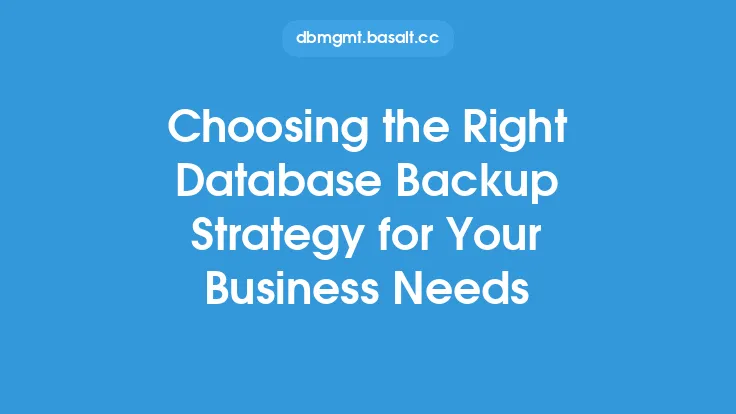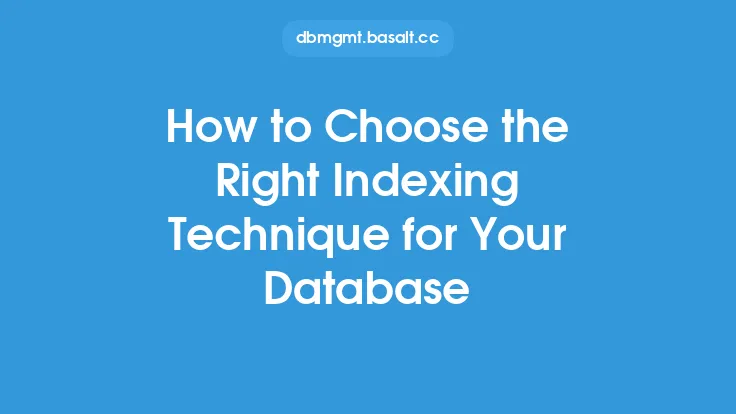When it comes to choosing the right storage solution for your database, there are several factors to consider. The storage solution you choose will have a significant impact on the performance, scalability, and reliability of your database. In this article, we will explore the different types of storage solutions available, their characteristics, and the factors to consider when selecting the right one for your database.
Types of Storage Solutions
There are several types of storage solutions available, each with its own strengths and weaknesses. The most common types of storage solutions include:
- Hard Disk Drives (HDDs): HDDs are the most traditional type of storage solution. They use spinning disks and mechanical heads to read and write data. HDDs are relatively inexpensive and offer high storage capacities, but they are slower than other types of storage solutions.
- Solid-State Drives (SSDs): SSDs use flash memory to store data, which makes them much faster than HDDs. They are also more reliable and require less power. However, SSDs are more expensive than HDDs and have limited storage capacities.
- Flash Storage: Flash storage is a type of storage solution that uses flash memory to store data. It is designed for high-performance applications and offers low latency and high throughput. Flash storage is more expensive than HDDs and SSDs, but it offers superior performance.
- Hybrid Storage: Hybrid storage solutions combine different types of storage media, such as HDDs and SSDs, to offer a balance between performance and cost. Hybrid storage solutions are designed to provide high performance for frequently accessed data and lower costs for less frequently accessed data.
- Cloud Storage: Cloud storage solutions store data in a remote location, accessible over the internet. Cloud storage solutions offer scalability, flexibility, and cost savings, but they require a reliable internet connection and may have security concerns.
Factors to Consider
When choosing a storage solution for your database, there are several factors to consider. These include:
- Performance: The performance of your storage solution will have a significant impact on the performance of your database. Consider the throughput, latency, and IOPS (input/output operations per second) of your storage solution.
- Capacity: The capacity of your storage solution will depend on the size of your database and the amount of data you need to store. Consider the storage capacity, scalability, and flexibility of your storage solution.
- Reliability: The reliability of your storage solution is critical to ensuring the availability and integrity of your database. Consider the durability, fault tolerance, and redundancy of your storage solution.
- Cost: The cost of your storage solution will depend on the type of storage media, capacity, and performance. Consider the total cost of ownership, including the cost of hardware, software, and maintenance.
- Security: The security of your storage solution is critical to protecting your data from unauthorized access. Consider the encryption, access control, and authentication mechanisms of your storage solution.
Database Storage Requirements
Different databases have different storage requirements. For example:
- Transactional databases require high-performance storage solutions with low latency and high throughput.
- Analytical databases require high-capacity storage solutions with high storage densities and low costs.
- NoSQL databases require flexible storage solutions with high scalability and flexibility.
- Cloud databases require cloud-based storage solutions with high availability, scalability, and security.
Storage Solution Architectures
There are several storage solution architectures to consider, including:
- Direct-Attached Storage (DAS): DAS is a storage solution architecture where storage devices are directly attached to a server or database.
- Storage Area Network (SAN): SAN is a storage solution architecture where storage devices are connected to a network, allowing multiple servers or databases to access the storage devices.
- Network-Attached Storage (NAS): NAS is a storage solution architecture where storage devices are connected to a network, allowing multiple servers or databases to access the storage devices.
- Object Storage: Object storage is a storage solution architecture where data is stored as objects, rather than as files or blocks.
Best Practices
When choosing a storage solution for your database, consider the following best practices:
- Align your storage solution with your database requirements and workload.
- Consider the performance, capacity, reliability, cost, and security of your storage solution.
- Evaluate different storage solution architectures and choose the one that best fits your needs.
- Monitor and optimize your storage solution regularly to ensure optimal performance and efficiency.
- Consider using a combination of different storage solutions to meet the different needs of your database.
Conclusion
Choosing the right storage solution for your database is a critical decision that can have a significant impact on the performance, scalability, and reliability of your database. By considering the different types of storage solutions, factors to consider, database storage requirements, storage solution architectures, and best practices, you can make an informed decision and choose a storage solution that meets the needs of your database. Remember to align your storage solution with your database requirements and workload, and to monitor and optimize your storage solution regularly to ensure optimal performance and efficiency.
